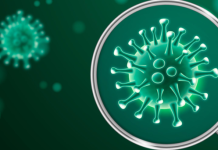
Cara Anna had tried to commit suicide twice when she realized she needed help. Out of shame and fear of losing her job as a foreign correspondent in China, she had never asked for help before.
NPR?wrote:
?She used her reporting skills to look for a support network, but soon discovered that suicide attempt survivors like her were rarely welcome.?
Anna:
?You go to a suicide survivor meeting and find yourself in a room where everyone else has lost someone. It’s really awkward.?
Because of the shame, people who have attempted suicide usually don’t speak up.
DeQuincy Lezine, clinical psychology and author, commented to NPR:
?People who?ve lived through a suicide attempt may avoid talking about it because of the shame and stigma.?
However, Anna refuses to continue to live in silence and shame. She wants ?people who experience this to be treated like real patients with a real problem.?
On July 7th,?a report was issued by the National Action Alliance for Suicide Prevention that ?calls for evidence-based support and treatment for people who have had (or are having) suicidal thought.? Both Lezine and Anna played a part in bringing this report to the table.
According to NPR, the report calls for:
- Support groups and peer counseling
- Compassionate and humane treatment for people in the midst of a suicide crisis
- Respite centers and other alternatives to hospital or mental health center lockdowns
- Protection from discrimination
- Access to follow-up care
One of the biggest needs the report calls for is ?better and more widespread training for first responders, physicians, and mental health care providers.?
Dese?Rae Stage spoke with NPR and shared a family member’s experience when he became suicidal:
?He was handcuffed and escorted by a police officer to a mental health facility. Where’s the dignity in that??
Both Stage and Anna have projects that reach out to provide support. Stage created Live Through This, which is a venue for survivors to tell their own stories and a collection of their portraits. Anna runs two websites, Talking About Suicide and AttemptSurvivors.com. They are places to give a voice to survivors and to spur discussion.
What these survivors are doing is something survivors need and deserve. It’s time to not be silent anymore. I have the perspective of being a survivor but also the child of a parent who committed suicide. I have always been open about my diagnosis of bipolar disorder. However, I’ve always been careful not talk about the night I was suicidal, fearing the judgment of those around me. I guess I rationalized that it is okay to be mentally ill so long as you’re doing great and on medication; however, it’s not okay to be going through a serious crisis. It makes no sense, but my mind is wired differently. Despite having been through that time of my life, my father’s suicide has left me with a hard judgment of others who are suicidal, especially when they have children. It’s not right, and I own that. I’m working on it especially now after reading and writing this. What these people are doing can lead us to a more compassionate and informed system of treating suicide crises, which we desperately need. I can assure you the treatment you receive in a hospital from nurses, receptionists, and general practitioners will shame you. The lockdown area is not therapeutic in the least. We should definitely throw our energy behind this and support them.
Please, don’t be silent. #WAYForward
Suicide Prevention Lifeline is a confidential, 24-hour suicide prevention hotline for anyone in a suicidal crisis or emotional distress. They provide crisis counseling and mental health referrals day or night. Their toll-free number is 1-800- 273- 8255 (TALK).
h/t to NPR.
 Liz Lee considers herself a modern woman of the South and hails from the swamps of South Georgia. She votes along no party line and prefers to look at issues from all angles before taking a stance. She takes particular interest in healthcare issues, mental health issues, and the battle for equality. She is also an emphatic advocate for the end to dog breed discrimination legislation. She is a wife, mother of one human child, mother to one furry American Bully, a college student, and also your typical everyday Wonder Woman. When she hangs up her cape, you can find her curled up in her office sewing, writing, playing World of Warcraft, or practicing banjo. You can follow her on Facebook to see what issue she is tackling. She also has Twitter and soon to have a website! You can also reach her by email.
Liz Lee considers herself a modern woman of the South and hails from the swamps of South Georgia. She votes along no party line and prefers to look at issues from all angles before taking a stance. She takes particular interest in healthcare issues, mental health issues, and the battle for equality. She is also an emphatic advocate for the end to dog breed discrimination legislation. She is a wife, mother of one human child, mother to one furry American Bully, a college student, and also your typical everyday Wonder Woman. When she hangs up her cape, you can find her curled up in her office sewing, writing, playing World of Warcraft, or practicing banjo. You can follow her on Facebook to see what issue she is tackling. She also has Twitter and soon to have a website! You can also reach her by email.





